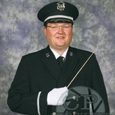Military music has a distinguished and honorable past. Every militia throughout history has felt that music was important enough that musicians be included within the ranks of the fighting forces. The United States is no exception. Our armed forces have had musical units since the beginning of our nation. On July 11, 1798, the oldest musical organization in our country was founded. The United States Marine Band, more often known as “The President’s Own,” began as 32 drummers and fifers along with a drum major.
As the nation’s military has grown, so has the number of musicians our military leaders have deemed necessary. Currently our military supports 137 bands. They are broken into premier bands in Washington, D.C., and the fleet or field bands stationed throughout the country and overseas. The price tag for these bands is currently around $437 million dollars a year, well under .001 percent of the budget for the Department of Defense.
Most would assume that this money primarily supports military ceremonies, troop welfare and morale, entertainment, and recruiting. Although this is a somewhat correct assumption, these roles are just a small part of the mission of military bands. I can only speak from the perspective of my 11 years as a part of the Marine Music Program, My time in the military is a good cross-section, as I served in both the field units as well as a premier unit in Washington.
Initially, I struggled to find the best way to tell the story. I called colleagues from all of the services, read all the current information, and researched all possible angles. However in the end, the best way for me to illustrate the true purpose of military music, is to use my experiences. This is a tiny fraction of what I experienced as a Marine musician. I hope you will be able to see why we must keep military music.
To me, military music is about influence, service, humanity, and opportunity.
Influence: Throughout my time in the military I served with numerous different units. One of these was “The Commandant’s Own,” The United States Marine Drum and Bugle Corps in Washington. During my time there we performed for the celebration of the 30-year reign of the Sultan of Oman. For this performance we were asked to give a 25-minute performance in the capital city of Muscat.
One level of this influence was through performance. In front of over 30,000 Middle Eastern spectators, the United States was represented. Besides this short performance, my unit had the opportunity to interact not only with military musicians from various countries, but also with regular non-music military members from all over the world as well as the public in Oman.
Service: Although each military musical unit is slightly different, most have secondary missions outside music. Military musicians are, first and foremost, part of their service branch. The Marine Corps proudly states that every Marine is a rifleman. I trained consistently on combat skills in the Corps. However, as a Marine musician, we took this to heart by instilling in our Marines that we are riflemen with an instrument beside our rifle. This was particularly true on 9/11.
On this day I went to work intending to accomplish administrative tasks and rehearse for upcoming performances. I was stationed with Marine Band New Orleans. The morning of the attacks we were in concert band rehearsal. I remember our Band Officer entering the rehearsal hall and telling us that the World Trade Center had been attacked.
The details were sketchy at this point but rehearsal was over and we all were to attend a mandatory formation immediately. We quickly followed orders as the base was locked down on the highest threat level of THREATCON Delta. Each of us were given base security assignments. The Marine bands have most recently served as area security in whatever environment they are assigned. For the first time in my career, I was issued a weapon and live rounds and given permission to protect our base as all costs. These instructions were given to musicians and non-musicians alike. For three days we slept in shifts and protected our base. This story pales in comparison to many my fellow Marine bandsmen could tell.
In the years following 9/11 numerous Marine Bands deployed to the Middle East. During most of their time there they stood a post and did exactly what I did on September 11, 2001: protected their area at all costs. In addition, the musicians would be released from their post after 12 hours and then they would pick up their instruments and perform for their fellow Marines or for others in the communities in which they were serving.
Humanity: Music is the one element in our world that reaches to the heart of each and every person on earth. No matter where in the world we are, we each can understand music. It surpasses spoken or written language. I was reminded of this point during a visit to a VFW with a brass quintet. I had played for heads of state, but on this day the audience consisted of veterans.
We ended our concert with a rendition of a medley of the service songs. I had played this more times that I could possibly count, but this time was different. As we played the Marine’s Hymn, I noticed from the back of the room a man that had sat completely dormant the entire concert. If you had asked me, I would have thought he was in a coma.
He sat in a wheelchair somewhat slumped over and seemed not to really hear the music we were playing. However, as we began the fanfare to the beginning of The Marine’s Hymn, I saw this man begin to move. Knowing that all Marines stand for our hymn, I knew he must be a Marine.
It took him the first half of the song to rise out of his wheelchair, but near the end of the song, he was standing at full attention, as straight as a man of his age could possibly stand, with his right hand over his eye in a full salute. I later found out that this man had not spoken or left his wheelchair in over a year. He was expected to pass soon. On this day he heard his song being played and could not keep himself in his chair. This is the core of humanity.
Opportunity: As a musician in the military I frequently performed for high school and college students. I knew one young man who desperately wanted to pursue a career in music, but his financial support for college ended. He found playing in the military was a viable option to serve his country and earn a way to complete his college degree.
He joined the military for four years and planned to continue his education later. When his enlistment ended, he decided to continue his military career. Because of his exposure to military musicians performing prior to his initial enlistment, he joined the Marine Corps, earned the title Marine, and learned tremendous life skills that helped him succeed in many careers after leaving the Corps. That young man now is pursuing a doctorate. That young man was me.
I could tell many more stories from my time in the Marine Corps. Every military musician will have dozens to add to these. Many times military musicians are the only military members that a civilian may ever encounter. The influence, service, humanity, and opportunity that our military provides is without monetary measure.
Currently, military music programs are under attack in Congress. In addition to the four areas I listed above, there are many more that could be added to them. If this amendment is approved it will effectively end other stories like the ones I have told. My goal is not to argue for a specific level of funding or a specified number of musical units. It is to illustrate from my perspective just how important music is within our armed forces.
The current amendment by Representative McSally, in the National Defense Authorization Act must be removed. If the leaders of our country think the music programs need to be evaluated, we should demand that it be done correctly, not just by blindly cutting the missions of our musical units. If we do this, the entire United States Armed Services and our country is at risk. I encourage you to speak with your representatives by email, phone, or letter. Sign whatever petition you believe will help. Your opinions matter. Let’s join together to make sure that music will always march on in our military.






